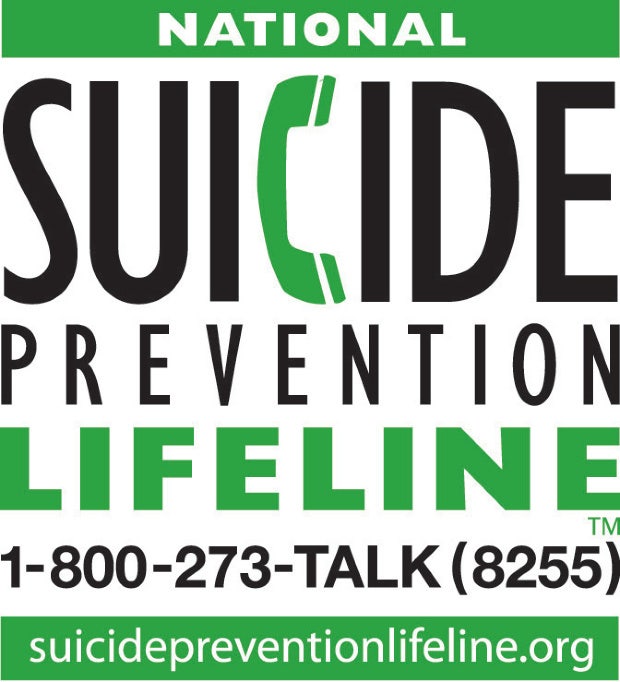Demi Lovato Says Drug Use 'Saved Her Life' — But Should Coping Mechanisms Be Praised Just Because They 'Work'?
Is there a right or wrong way to cope with mental health issues?
 Tinseltown / Shutterstock
Tinseltown / Shutterstock Demi Lovato has courageously revealed new details about her 2018 overdose and subsequent brain damage. The singer recently discussed her struggles with mental health and suicidal thoughts, boldly engaging in a dialog that’s only beginning to gain steam in the public consciousness.
In doing so, she’s using her powerful platform to bring greater awareness to several issues that are still heavily stigmatized and highly controversial, including addiction, suicidal ideation, depression and identity.
“In the same way it almost killed me, [drug use] saved my life at times,” said Lovato. "Because there were times that I dealt with suicidal ideations. And had I gone forward with that in that moment, instead of another destructive coping mechanism, I wouldn’t be here to tell my story."
Lovato should be lauded for the move and praised to high heaven for breaking down barriers in an act of vulnerability that could potentially save lives.
While there are valuable lessons we can take away from her story in terms of discovering what someone can do if they ever find themselves facing a desperate situation, we should all be mindful not to miss what is arguably the most important message she had to impart.
Drug abuse is not a healthy coping mechanism.
The Dangers of Unhealthy Coping Mechanisms
Using drugs or alcohol to pull through a difficult situation is known as self-medicating. Self-medicating is dangerous, and can exacerbate the symptoms of mental illness.
People engage in this and other maladaptive coping strategies for a variety of reasons, such as insecurity, social pressures, lack of access, and limited awareness. Lovato is in the final camp, admitting that growing up she had no idea that pathways for safe and effective mental health care were available. That’s not just Lovato’s story, but the story of millions of Americans who believe they have nowhere to turn.
Amy Dresner, author of the addiction memoir, "My Fair Junkie" and cohost of the Rehab Confidential podcast, details the complete hopelessness that can envelop someone in the throes of self-medicating.
"When I stumbled upon meth at 24, after struggling with suicidal ideation, severe depression, a nervous breakdown and an eating disorder," says Dresner, "I felt like, 'Okay, with this stuff, I can be on the planet.'
"As addicts, we don’t wanna die. We just don’t want to be in excruciating pain. And then once you starting using regularly, your whole brain/dopamine system gets hijacked, your prefrontal cortex shuts down, and you’re in this psychological and biological prison that is extremely difficult to escape from."
In fact, up to 80% of people who struggle with psychological disorders ultimately never seek help or are unable to get it. That amounts to an overwhelming number of people, considering the fact that one in five Americans struggles with mental illness.
These are friends, colleagues, parents, neighbors, and, of course, celebrities. Being in the spotlight has its own set of unique challenges, many of which have been previously documented in detail, in part due to efforts by individual celebrities themselves.
Living in on-again, off-again quarantine during a pandemic, the resulting isolation that many are feeling is a breeding ground for developing unhealthy coping mechanisms.
Isolation is a major risk factor for mental illness. In the new normal of Zoom meetings and monotonous daily schedules, our sense of purpose and of place can easily become muddled.
Since the pandemic began, 42% of American adults have reported symptoms of anxiety or depression, and 11% admit that they’ve entertained thoughts of suicide within the last month. Currently, the top causes of disability in the U.S. are mental illness and substance abuse.
The data paints a stark picture, but also a definitive narrative begins to emerge if the barriers put up by social stigmas allow it to squeeze through: mental illness is normal.
Struggling with trauma is normal.
Not knowing where to turn is normal.
Too many are becoming lost in a sea of hopeless neglect within a system that’s quick to throw a star-spangled blanket over any perceived weakness.
Maladaptive Coping Strategies vs. Healthy Coping Mechanisms
Self-medicating with drugs and alcohol may be one of the more common coping strategies people turn to, but that doesn’t make it a healthy solution, even when famous people say it was helpful for them.
It's important to recognize that there are both maladaptive (sometimes called negative or unhealthy) coping mechanisms and healthy coping mechanisms.
Some obstacles that people face can be addressed with simple solutions. Practicing better sleep hygiene, getting regular exercise, conducting a news and/or social media detox, and picking up healthy habits like meditation can alleviate stress and balance emotional wellbeing.
Dresner says people are ill-equipped for this sort of thing.
"We are built to lean into self-destruction instead of self-soothing behaviors," she says.
"That can be meditation, exercise or as basic as washing your hair, cleaning your house, getting a massage, taking a nap. Getting out of your head and being there for somebody else is great too. Action changes feelings. I don’t wait for my feelings to change or let them determine my actions anymore. It’s all about emotion regulation."
Other challenges may require the help of professionals. And that’s okay — that’s what they’re for.
The realm of medical science has clawed its way through era after era of human history to develop the optimized tools now available for treating cognitive disorders.
The more people take advantage of the mental health care options available, the less stigma there will be around seeking effective treatment from qualified professionals.
Professional help often involves therapy.
There’s a misconception that therapy is glorified social time, that one simply arrives at an office where the walls are weighed down by decoratively framed degrees and complains, week after week, about this or that coworker. But this is a TV caricature of one type of talk therapy, in a world that includes many options, such as cognitive behavioral therapy (CBT), psychodynamic therapy, Gestalt therapy, art therapy, contemplative psychotherapy, and dozens more.
The point of therapy is the same as any other medical intervention: to develop and execute an acute treatment plan.
Oftentimes, people are surprised to discover there are extremely specific, session-by-session strategic plans that can be used to treat several psychological issues.
Pharmaceuticals, aka drugs prescribed by a licensed physician, are another option.
The fact that so many choose to self-medicate is all the more heart-wrenching when you consider the availability of legitimate therapeutic medicines proven to be effective at managing the symptoms of many common mental health conditions.
The problem is that many people remain afraid of prescription pills; as if, somehow, the well-known and potentially fatal effects of abusing drugs and alcohol were a better avenue to travel.
Modern medicine is a wonderful thing. Far from creating zonked out, brainless meat sacks, antidepressants and other categories of mental health aides are designed to make a person feel like themselves. Even if, occasionally, the right fit is hard to find and several medications have to be tried out.
Despite Lovato's suggestion, intentional or not, that abusing drugs may be a legitimate way to prevent suicide, the safest route for self-care involves creating a treatment plan that can be overseen by an expert clinician with years of experience in the field of mental health.
An individual choosing to dose themselves with harmful substances may cause themselves acute damage or death.
Of course, even medicine that is properly prescribed has the potential to be abused, which is why most therapists require regular sessions with anyone using such medications.
Combining a treatment plan of antidepressants or antianxiety meds with therapy is a common strategy because it allows a person dealing with deep-seated trauma or other issues to work through the underlying causes of their suffering as the drugs help them maintain emotional balance.
It can be extremely hard work, raking your mind over the coals and growing blisters on your heart. But it’s worth it in the end when a person finds the power to take their life back.
Demi Lovato may have found a version of success through dangerous means, but while we are grateful she is in a better place now, there is no denying the way she got there came at a great cost.
We should appreciate the message she has for us, without idolizing the messenger to such an extent that we blindly follow the path she took.
Let’s thank Lovato for giving those struggling with their mental health a kind of visibility, understanding and compassion she never had, for shining a light on the progress society requires to ensure the safety of those expected to exist within it.
If, like so many, you or someone you know is struggling with mental illness, seek help. Find a treatment plan that works for you, so that Lovato’s lessons don’t become your own to impart someday.
For immediate help, please contact the National Suicide Prevention Lifeline at 1-800-273-8255 to speak with someone who knows exactly what you're going through.
You can also call SAMHSA’s National Helpline at 1-800-662-HELP (4357) or text "HELLO" to 741741 to be connected with the Crisis Text Line.

Kevin Lankes is the Senior Love and Empowerment Editor at YourTango. His fiction and nonfiction have appeared in Here Comes Everyone, Pigeon Pages, Owl Hollow Press, The Huffington Post, The Riverdale Press, and countless blogs, webpages, and other media. Find him on Twitter.

